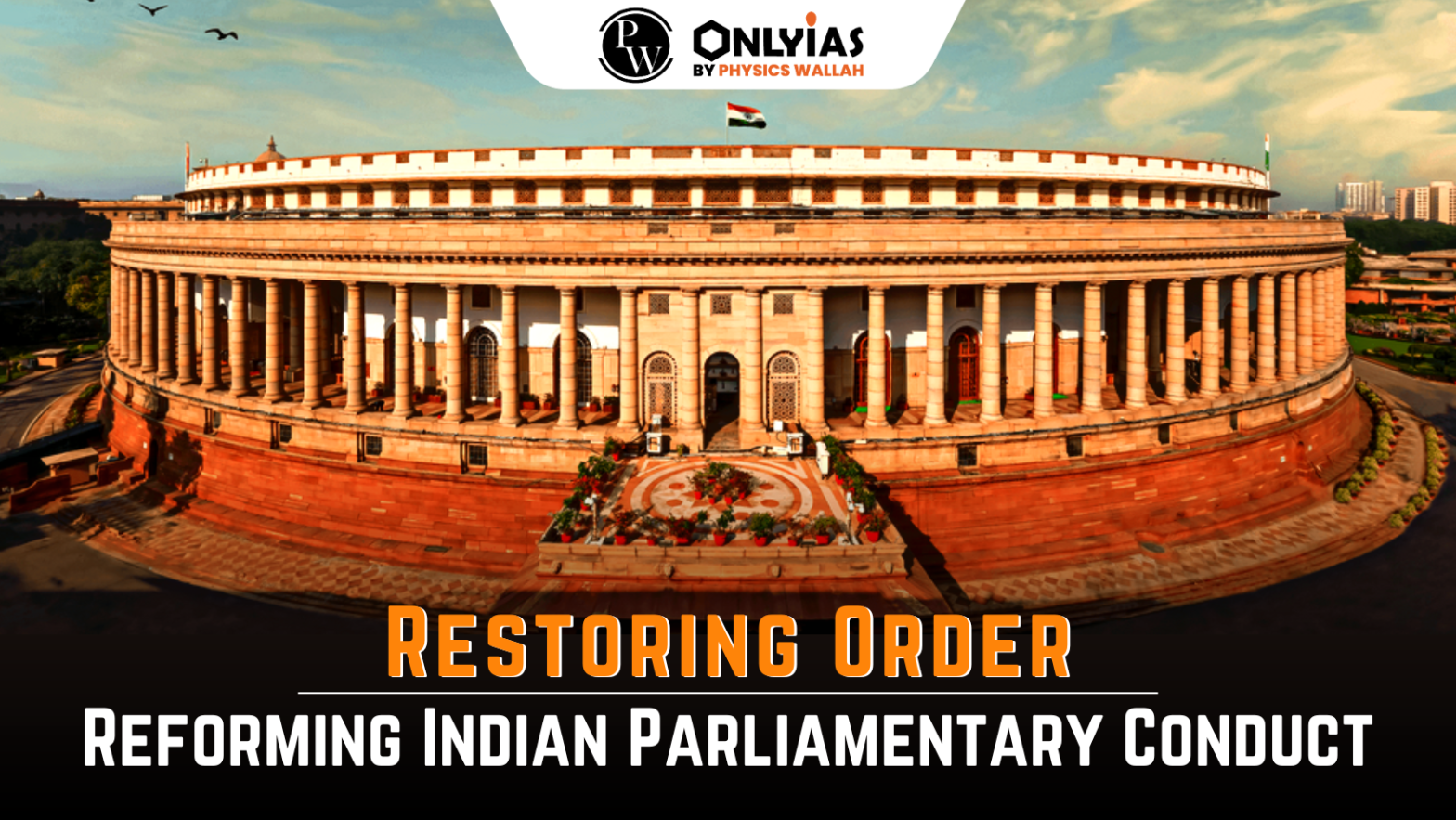Context: This article is based on an Editorial “Crafting a new chapter in parliamentary conduct Premium” which was published in The Hindu. This article expresses the concerns over increasing disruptions in the Parliament of India, resulting in decreasing the efficiency of effective debates in the Parliament.
Revisiting India’s Legislative Ethos to analyze Parliamentary Conduct:
- Adoption of the Parliamentary System: Indian politicians adopted the Parliamentary System upon Independence, based on Britain’s Westminster model.
- India’s nationalists had been convinced that the Parliamentary System was the best.
- Offer of Clement Attlee: Clement Attlee, traveled to India as part of a constitutional commission and argued the merits of a presidential system over a parliamentary one, his Indian interlocutors opposed him by favoring the Parliamentary System.
Challenges in Parliamentary Conduct:
- Frequent Disruptions in parliament: Rather than engaging in constructive debates, many parliamentarians are indulging in disruptive practices and weakening the purpose of the legislative body.
- Losing the Decorum during Parliamentary Conduct: Over seven-and-a-half decades of Independence, Indian Legislatures have witnessed a decline in parliamentary decorum as witnessed by the furniture overthrown, microphones ripped out and slippers flung by unruly legislators, shouting slogans, etc.
- Impunity and Reinstatements: Lawmakers violating rules and facing suspension often return to their positions after a brief period and mild apologies.
Time for Reforms the Parliamentary Conduct: Learning from Westminster
- Opposition Day: Implement a dedicated day each week where the opposition sets the agenda for parliamentary debates.
- This arrangement ensures a proper Parliamentary Conduct and Opposition has a designated platform to express its views and priorities within the parliamentary schedule and would help in reducing the disruptions.
- Prime Minister’s Question Time (PMQs): It is a significant and widely watched parliamentary event in the United Kingdom, where MPs have the opportunity to question the Prime Minister about various issues. It is known for spirited exchanges and is a key aspect of ensuring executive accountability.
- This practice ensures transparency, accountability, and scrutiny of the government’s actions and decisions in Parliamentary Conduct.
- Reforming the Speaker’s Role: The Speaker should consider every single adjournment motion moved by an Opposition MP and even notice requests for recording dissent through “division”rather than the frequent rejection.
Conclusion:
For effective legislatures, it is necessary for the government and the opposition to maintain harmonious relations and work in a collaborative manner to ensure a smooth Parliamentary Conduct. Government needs to take steps to ensure opposition members to feel as valued members of an institution rather than irrelevancies.
![]() 19 Sep 2023
19 Sep 2023
